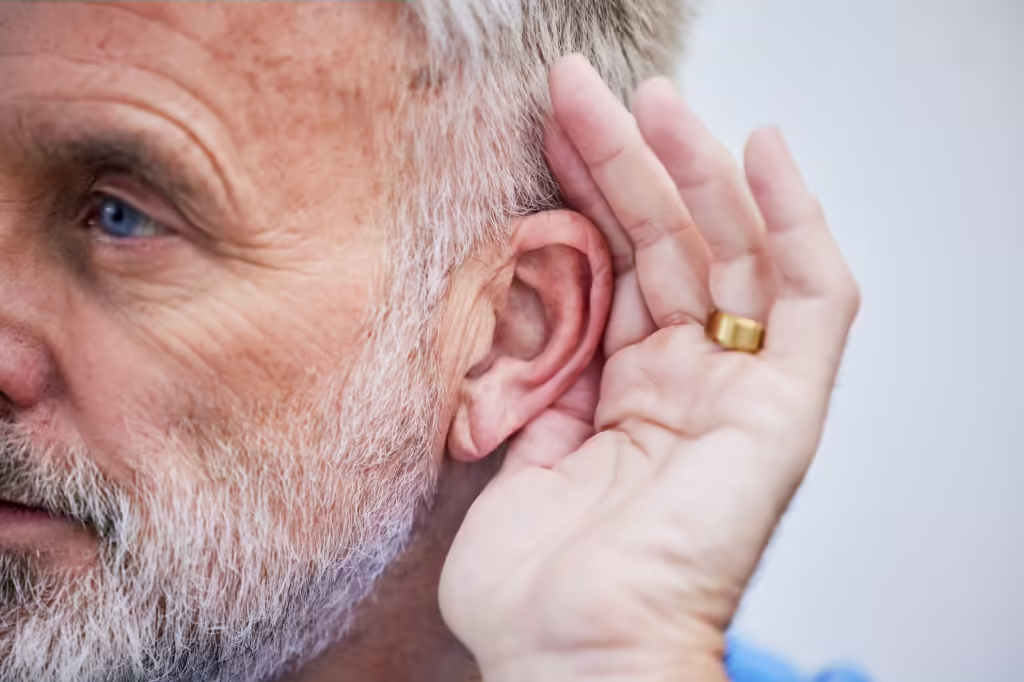At some point or another during our lifetimes, we come to accept that with age comes things like graying hair, wrinkles, and achy joints. But what about brain shrinkage? Believe it or not, it’s true. Our brain shrinks as we age: a process also known as “brain atrophy” or “brain tissue loss”. And unfortunately, it’s simply a part of life. But did you know that hearing loss has been found to accelerate brain atrophy? Let’s discuss.
What the Studies Say
Two independent studies by Frank Lin, MD and in 2014 and Nicole M. Armstrong, PhD in 20192 both confirmed that hearing loss or impairment leads to brain tissue volume loss.
The study led by Frank Lin compared physical changes to brain tissue volume in two groups of adults over the course of 6 years.1 One group included participants with normal hearing; the other, untreated hearing loss. At the end of the study, following extensive audiometric tests and MRI scans, researchers found that those with untreated hearing loss had accelerated rates of brain shrinkage compared to those with normal hearing.
The later study conducted by Nicole M. Armstrong, PhD also sought the same objective: investigate how hearing loss impacts the brain physically. In fact, the study used the same basis for investigation: comparing two groups of individuals with and without hearing loss over the course of 6 years using MRI to track brain tissue loss. And the results? The same. Individuals with untreated hearing loss saw “steeper volumetric declines in the temporal gray matter, hippocampus, and entorhinal cortex.”2
Connecting Hearing Loss and Brain Shrinkage
But how are these two connected: hearing loss and brain shrinkage? Dr. Lin suggests that lack of stimulation of these areas as a result of the hearing loss causes subsequent tissue atrophy. Much like your muscles, your brain tissue will start to shrink if it isn’t used regularly. And untreated hearing loss is the equivalent of not exercising: the less your brain processes sound, the smaller that brain tissue becomes from disuse.
But what’s equally important to note is that the middle and inferior temporal gyre structures of the brain are also involved in memory and sensory integration. And these two areas are strongly associated with mild cognitive impairment and dementia (specifically the most common form, Alzheimer’s disease). In other words, untreated hearing loss can accelerate both brain atrophy and dementia.
What That Means for You
So, what do we take away from the studies’ findings? Here’s what Dr. Lin had to say:
“Our results suggest that hearing loss could be another ‘hit’ on the brain in many ways…. If you want to address hearing loss well, you want to do it sooner rather than later. If hearing loss is potentially contributing to these differences we’re seeing on MRI, you want to treat it before these brain structural changes take place.”
Fight Brain Atrophy by Treating Your Hearing Loss Now
So what are your next steps? Take expert advice and see a licensed hearing care professional to have your hearing tested and treat any hearing loss you may have. There is no better time than right now. Studies have already shown that treating hearing loss with hearing aids can help slow cognitive decline and assist in preventing dementia.3 Plus, the health benefits of hearing aids don’t stop there—just recently, it was announced that wearing hearing aids may even increase your lifespan.5
Better hearing and better aging go hand in hand. With the help of hearing aids, you can safeguard your brain health into the future. Schedule an appointment today for a hearing consultation.
Ready to take your hearing health seriously? Schedule an appointment today.
Not sure whether you have hearing loss? We have a test for that! Try our FREE online hearing test.
References:
- Lin FR, Ferrucci L, An Y, Goh JO, Doshi J, Metter EJ, Davatzikos C, Kraut MA, Resnick SM. Association of hearing impairment with brain volume changes in older adults. Neuroimage. 2014 Apr 15;90:84-92. doi: 10.1016/j.neuroimage.2013.12.059. Epub 2014 Jan 9. PMID: 24412398; PMCID: PMC3951583. https://www.ncbi.nlm.nih.gov/pmc/articles/PMC3951583/
- Armstrong, N. M., An, Y., Doshi, J., Erus, G., Ferrucci, L., Davatzikos, C., Deal, J. A., Lin, F. R., & Resnick, S. M. (2019). Association of Midlife Hearing Impairment with Late-Life Temporal Lobe Volume Loss. JAMA Otolaryngology– Head & Neck Surgery, 145(9), 794. https://doi.org/10.1001/jamaoto.2019.1610
- Lin, Frank R et al. Hearing Intervention Versus Health Education Control to Reduce Cognitive Decline in Older Adults With Hearing Loss in the USA (ACHIEVE): a Multicentre, Randomised Controlled Trial. The Lancet, Volume 402, Issue 10404, 786 – 797. https://doi.org/10.1016/S0140-6736(23)01406-X
- Choi, Janet S, et al. Association Between Hearing Aid Use and Mortality in Adults With Hearing Loss in the USA: a Mortality Follow-up Study of a Cross-sectional Cohort. The Lancet Healthy Longevity, Volume 5, Issue 1, e66 – e75. https://doi.org/10.1016/S2666-7568(23)00232-5

